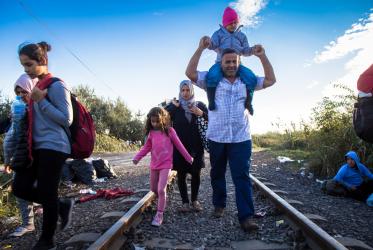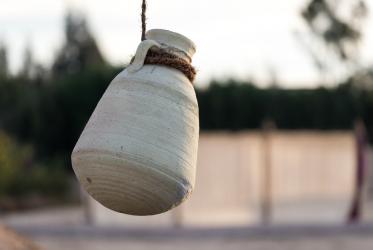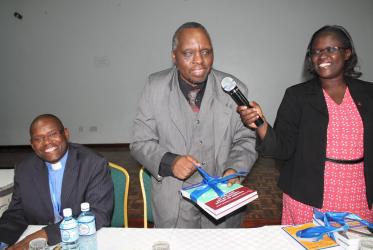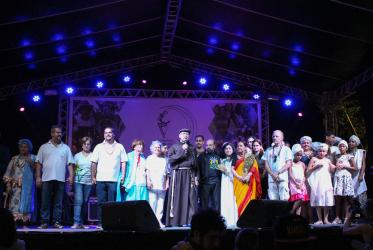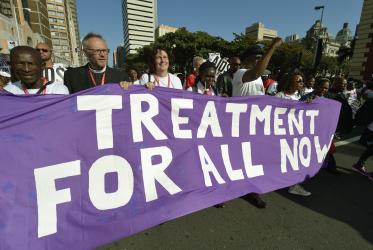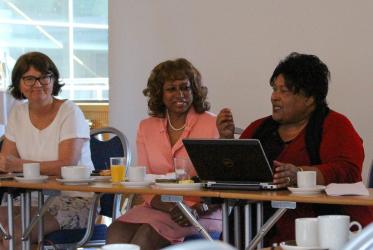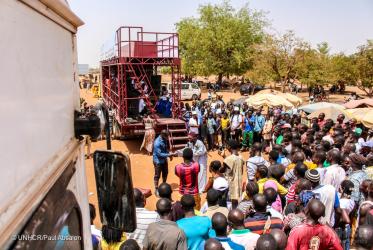Displaying 101 - 120 of 175
12 October 2017
Women in development create space for hope in Egypt
15 June 2017
New theological materials offer fresh perspective on disabilities
08 December 2016
Eliminating gender-based violence focus of 16-day campaign
01 December 2016
Tveit offers input at religion and development meeting
03 October 2016
AIDS 2016: “Stigma kills more people than HIV”
17 July 2016
In Ghana, women bring open minds, honest words
05 July 2016
God’s forgotten children
20 June 2016

